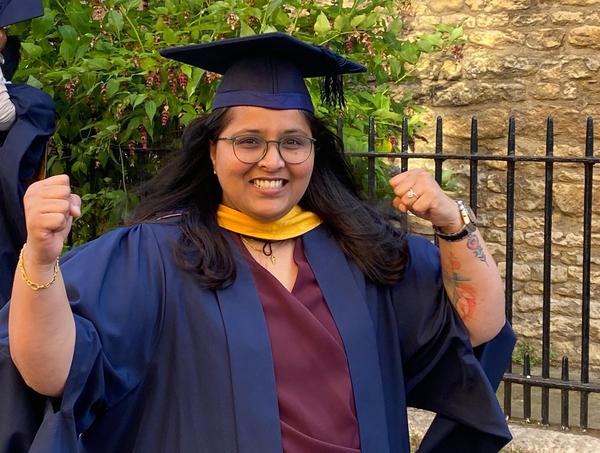

The '90s were transformational years in India. I grew up in a working-class neighbourhood in Hyderabad, India, surrounded by family members who were blue-collar factory workers who lost jobs due to government privatization policies and could not bargain for fair settlements. We had to live through inefficient government machinery, inadequate civic infrastructure, lack of consumer protection, political corruption, and communal riots.
All these life situations have shaped my thought process. No matter the nature of the societal problem, the only way to fight back it is to have a collective voice and a platform, and this lead me to choose journalism as a career.
My reporting focused on governance, women empowerment, and socio-cultural issues related to human trafficking, climate-related agrarian crisis, discrimination of marginalized sections, honour killings, extra-judicial killings perpetrated by the police, natural calamities and elections.
Over 15 years as a journalist, I progressed from Reporter to Assistant Editor of a digital news platform, where I mastered investigative storytelling, audience engagement, and strategic content development.
I have produced stories for digital platforms, Radio, and World Television bulletins in English, Telugu, and Hindi.
My career has always been about finding connections—between people, ideas, and systems. I have sought to understand how narratives shape public perception, how digital platforms amplify discourse, and how content ecosystems can be optimised or manipulated.
Today's newsroom is a constant tussle between the constant flow of information from numerous channels, fact-checking, impromptu decision-making on the editorial direction, and deployment of physical assets into the field to further report on developing stories.
Journalism everywhere is under the constant stress of harsh economic realities and fierce competition to get audience attention and is now inexplicably tied to ad-revenue targets. None of our journalism degrees have prepared us for this industry in India or equipped us with the lessons and knowledge to manage editorial policy and economic resources.
This led me to go back to school for my MBA. I graduated with distinction. However, I redirected my focus to AI safety and governance. Over the past two years, I have actively transitioned my focus toward deepening my understanding of AI and its societal implications. My interest lies in how AI intersects with disinformation, narrative control, and democratic resilience.
Follow my substack where I try and write on how artificial intelligence is reshaping truth, power, and public trust particularly in fragile democratic and institutional contexts.